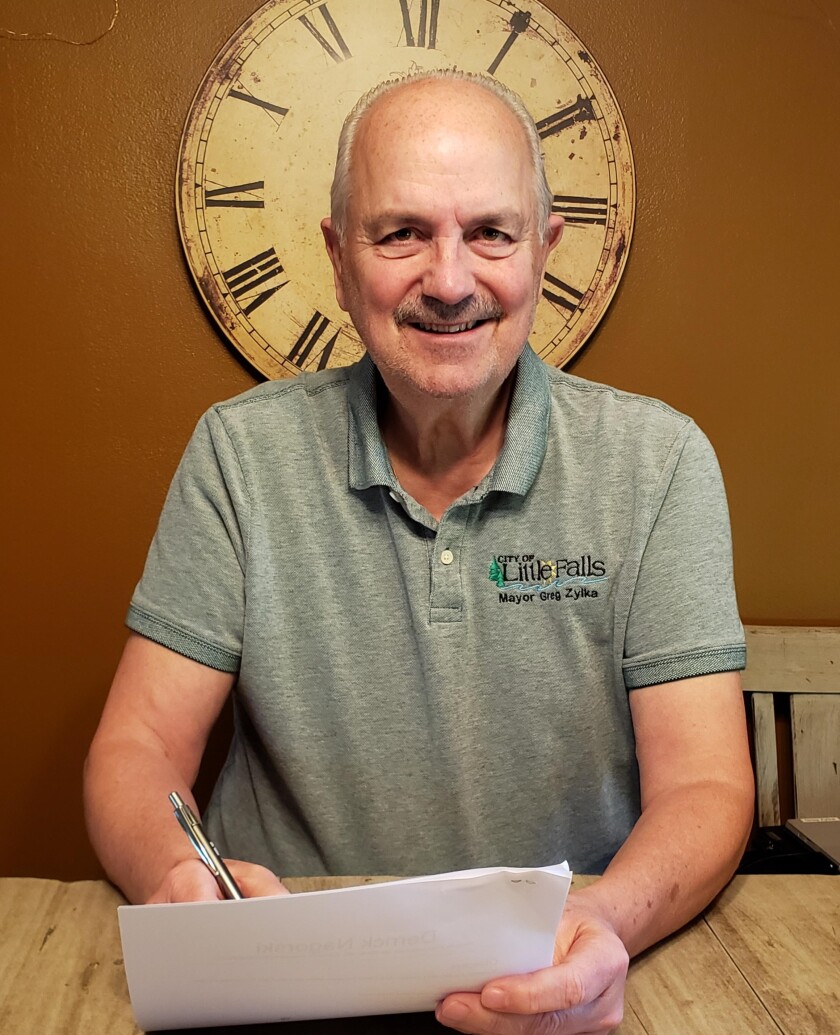ST. PAUL — Having been rocked by the coronavirus pandemic, cities in Greater Minnesota are calling on the state Legislature to offer them a lifeline and bolster programs that could help speed up economic recovery across the state.
In a Friday, Jan. 29, news conference, the Coalition of Greater Minnesota Cities (CGMC) announced its legislative priorities for the 2021 session: maintaining state aid to local governments; and investing in child care, housing and water infrastructure.
Executive Director Bradley Peterson said these issues have always been important to the coalition, but "the pandemic has made them even more critical and timely."
Greg Zylka serves as president of the CGMC and mayor of Little Falls, a city of fewer than 9,000, roughly 100 miles northwest of Minneapolis. He said the pandemic has taken a toll Little Falls residents and businesses, and the city has tried to help by promoting businesses and offering grants, as well as continuing regular city services like emergency response, libraries, parks, water and more.
As the Legislature prepares to address a $1 billion shortfall in its upcoming budget cycle, Zylka said cutting local government aid (or LGA) would be "devastating." For Little Falls, LGA makes up 40% of the city's general fund. Of the entire state budget, though, LGA makes up about 2%.
ADVERTISEMENT
"What would we do? What would we cut?" Zylka asked. "If the state were to cut the LGA, the only way to remedy that without cutting services to our police and fire, would be to tax the heck out of our communities. Our residents and businesses are hurting enough right now."

In addition to regular LGA, Peterson said he hopes to see the Legislature concur on other investments to help Greater Minnesota, including in housing and child care — both of which are in short supply. The CGMC is proposing new grant programs to rehabilitate dilapidated homes and build public infrastructure for new housing, as well as $20 million in grants to go toward new and expanded child care facilities.
"Let me be clear: The economic recovery cannot happen unless the Greater Minnesota workforce has a place to live and someone to look after their children while they work," Peterson said.
Peterson also called on the Legislature to pass $100 million more in bonding to fund water infrastructure, a concept he admitted some lawmakers may "balk" after passing the state's comprehensive bonding bill earlier this year. But with roughly $11 billion in water infrastructure needs over the next 20 years, and interest rates are at an all-time low, he said now is the time to invest.
Minnesota is home to the nation's only divided Legislature, with Republicans controlling the Senate, Democrats the House and Democratic Gov. Tim Walz holding the pen to sign or veto bills into law. Peterson said he hopes CMGC's proposals are in the "sweet spot where legislators can find common ground."
"All of our issues are very bread-and-butter issues," he said. "They're very core to providing good public services at an affordable price across the state and that is not necessarily a controversial idea."
ADVERTISEMENT
One topic that has struck deep partisan and urban-rural division in the Legislature is the use of state disaster funds to help cover the cost to repair the Twin Cities after last summer's civil unrest. In his proposed budget released Tuesday , Jan. 26, Walz floated $150 million to go toward rebuilding.
In the Republican-controlled Senate, lawmakers are fighting back, debating a bill that would retroactively declassify civil unrest as eligible for disaster funds. In a video posted to Twitter on Friday, State Sen. John Jasinski, R-Faribault, said the "biggest thing" he has heard from his constituents is, "Don’t let us pay for what’s happened.”
“What’s happened is, they don’t have enough police officers, they had riots, and now they want us as rural Minnesotans ... to pay for the damage that was done in Minneapolis," Jasinski said. "We are not going to do that."
From the House, Rep. Cedrick Frazier, D-New Hope, has said that he "couldn’t fathom the thought of not supplying disaster relief to Greater Minnesota when a tornado comes down.”
When asked during Friday's news conference, Peterson said the issue is unprecedented, so CGMC as an organization hasn't spent much time yet considering the issue.
"I think we have to figure out going forward what is the state’s role in dealing with those sort of things," he said. "I think when you have those unprecedented, unique sort of circumstances, the state does have some role in helping, and the size of scope of that is something I think will be determined at the Legislature."
Contact Forum News Service reporter Sarah Mearhoff at smearhoff@forumcomm.com or 610-790-4992.








